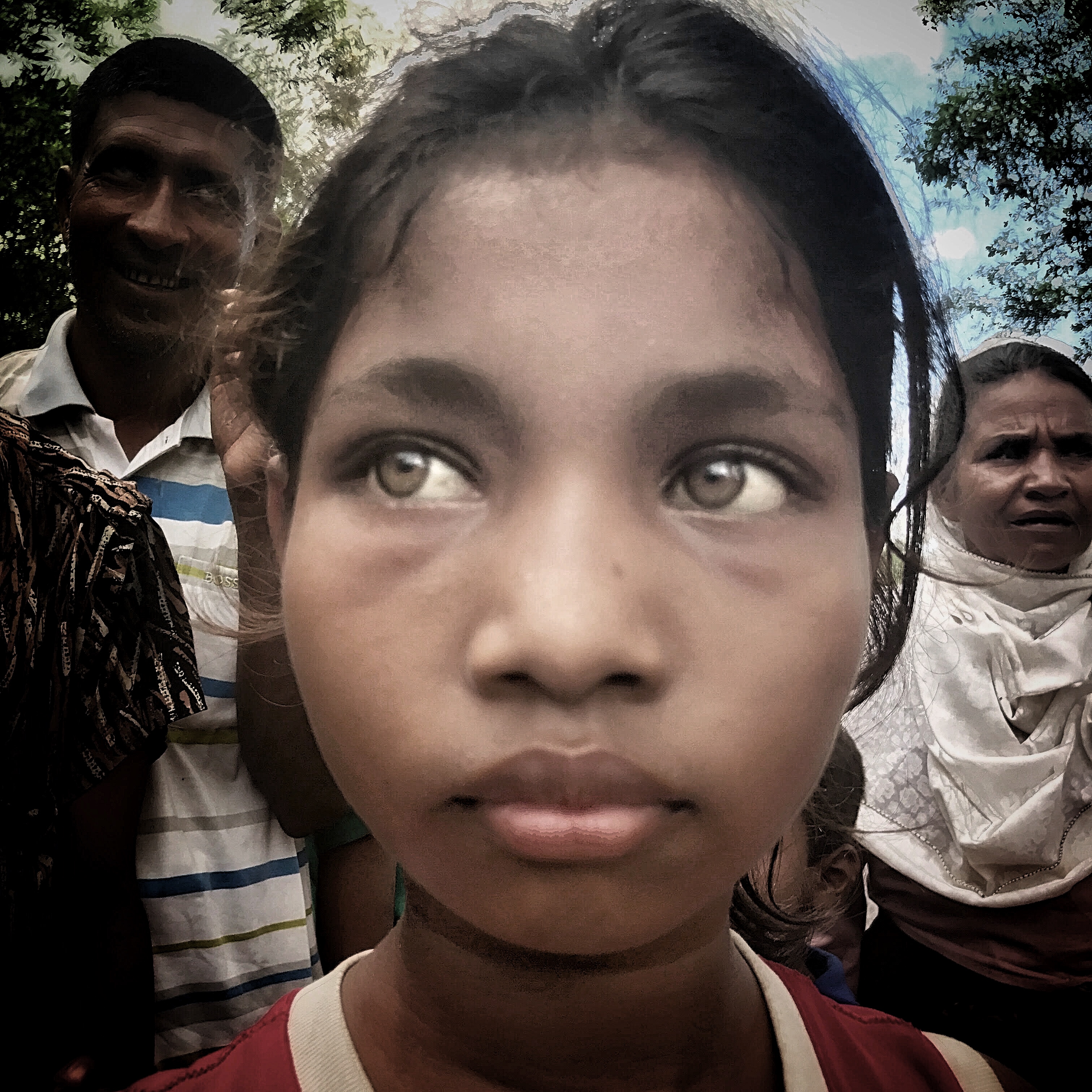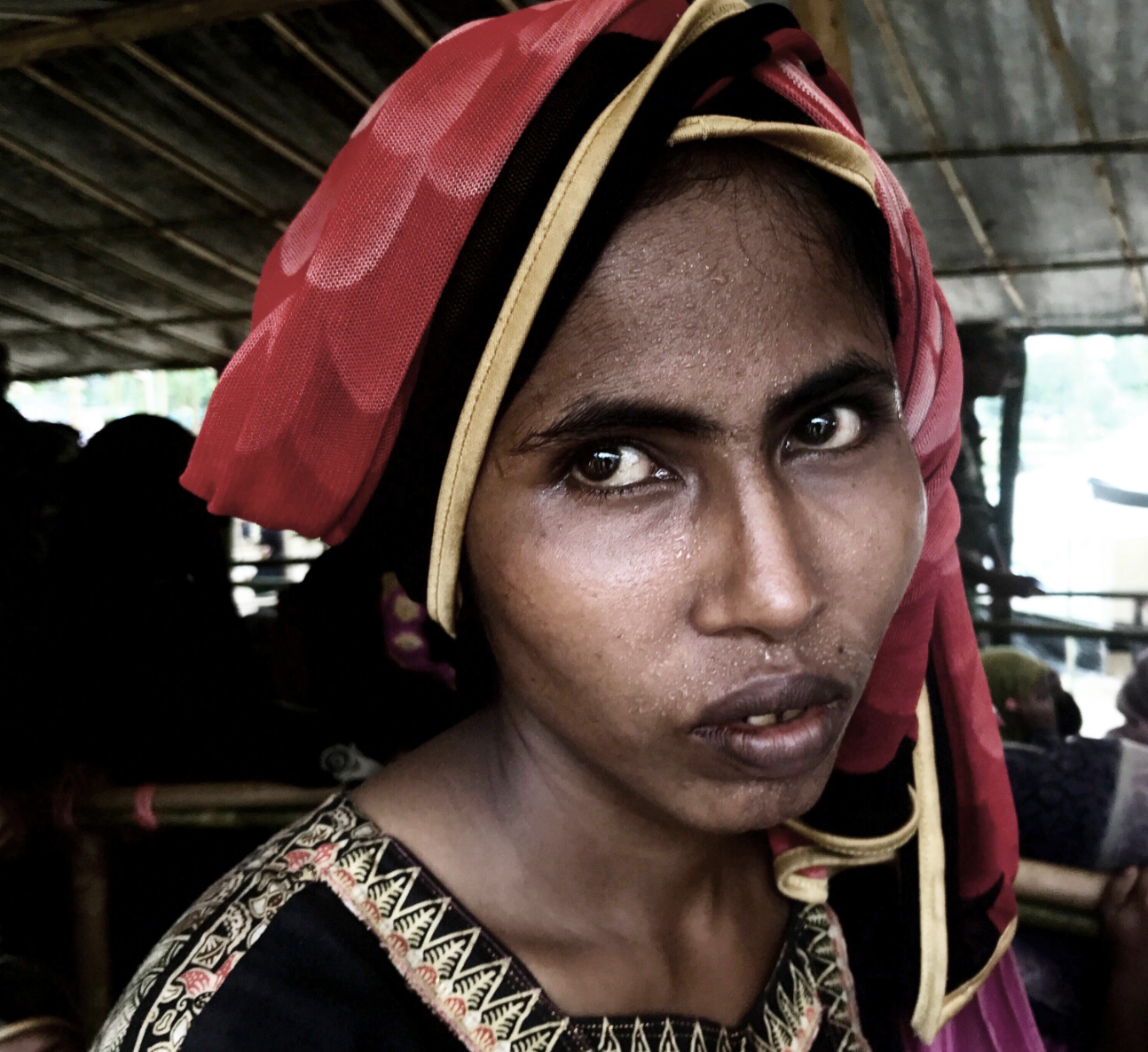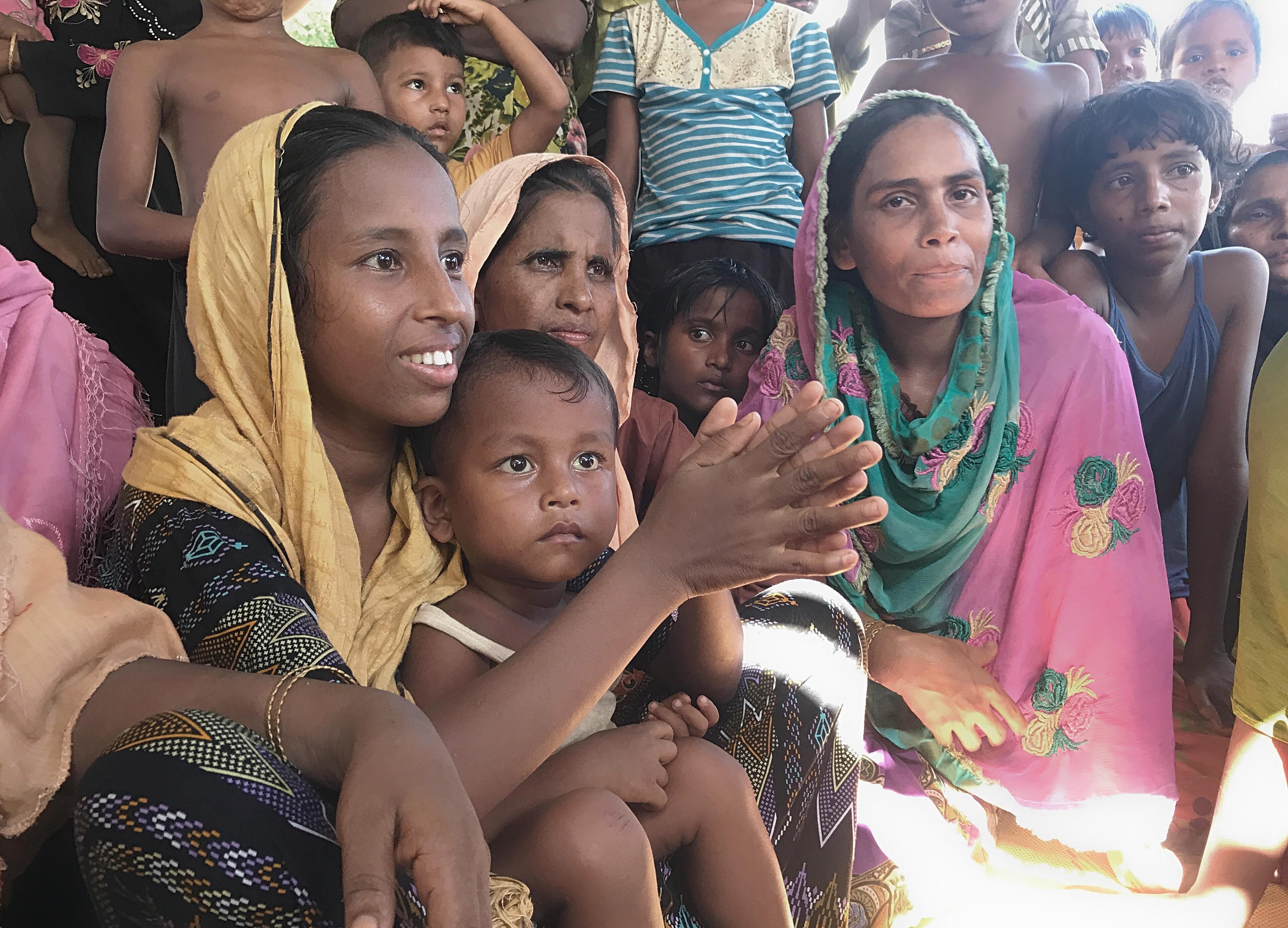On the International Day of the Girl, poignant stories from the Rohingya refugee camps in Bangladesh
Veronica Pedrosa is part of UNFPA's humanitarian response team in Cox's Bazar District
At the Leda refugee camp in Bangladesh, close to the border with Myanmar, thousands upon thousands of Rohingya refugees can look across the paddy fields and see the country where they were born.
More than 240,000 of the entire influx of over 500,000 Rohingya refugees so far are children and as I entered the camp after a storm, a crowd followed me splashing through puddles in the makeshift road, curious about my camera and to find out what I was doing there.
These particular children varied in age from about 7 years to 16 years, girls appeared to mix easily with boys, though even a cursory observation reveals that everyone tells the girls to get out of the way. It’s like they’re at the very bottom of a hierarchy based on Darwinian principles.

A girl at the Burmaya refugee camp in Cox's Bazar, Bangladesh. Image: © UNFPA / Veronica Pedrosa
Media stories have made much of the horrific stories many women have told about the attacks on their families and community. But the important thing is that the joint aid effort is helping them meet at least their basic needs. UNFPA, the United Nations Population Fund, is providing Women Friendly Spaces co-located with sexual and reproductive health clinics.
One woman who refused to speak about her experience at first, eventually began to feel less traumatised at one of these spaces. She spoke of how her sister was gang-raped and killed in front of her. She’s getting counselling now and her medical needs assessed.
There are so many girls playing and running around in the fields where the camps around Cox’s Bazar are located. Watching them while the stories of their mothers, aunts, grandmothers and sisters crowd your mind, has a curious constricting effect on one’s heart, fear for their destinies overwhelms the mind.
The work that the UNFPA and others are doing is giving girls a little space to imagine a different future. Each one will have her own interpretation of what that means but they should not live in fear of violence and loss of basic human dignity.
Here where everyone has lost and suffered so much and trudges barefoot in the mud, these ideals might seem out of place but they’re actually more important in places like this refugee camp. There’s no proper sanitation, so women wait till nightfall before they can go out in the privacy of the dark.

A Rohingya woman at the Burmaya refugee camp in Cox's Bazar, Bangladesh. Image: © UNFPA / Veronica Pedrosa
I watched as thousands of UNFPA's trademark dignity kits were distributed among women and girls at the Burmaya Para camp. A crowd of women pressed around caseworker Noor Begum as she showed them what was inside the kits and how to use them. A torch, a sarong, sandals, a sanitary pad, a whistle. They seem so ordinary and simple, but make a huge difference to girls and women’s lives here.
These programmes don’t cost much in the grand scheme of things, but they provide invaluable safety and dignity.
As this Day of the Girl Child is observed the world over, UNFPA is working to make sure that here in Bangladesh and every disaster or conflict-affected zone where we operate:
- Every woman of reproductive age has access to essential services and supplies for her safety, health and dignity.
- No woman dies as a result of pregnancy or childbirth.
- Every woman of reproductive age has essential clothing and personal items to maintain her hygiene, safety, personal dignity and mobility.
- Every woman and girl is protected from gender-based violence (GBV).
- Every GBV survivor, including survivors of sexual assault, can access life-saving services and support.
- Affected communities have access to psychosocial support and case management services.
“Every young person’s potential is fulfilled” is one of the components of UNFPA's crucial mission. We want you to join us and support our efforts. Together, we can all make a difference,


